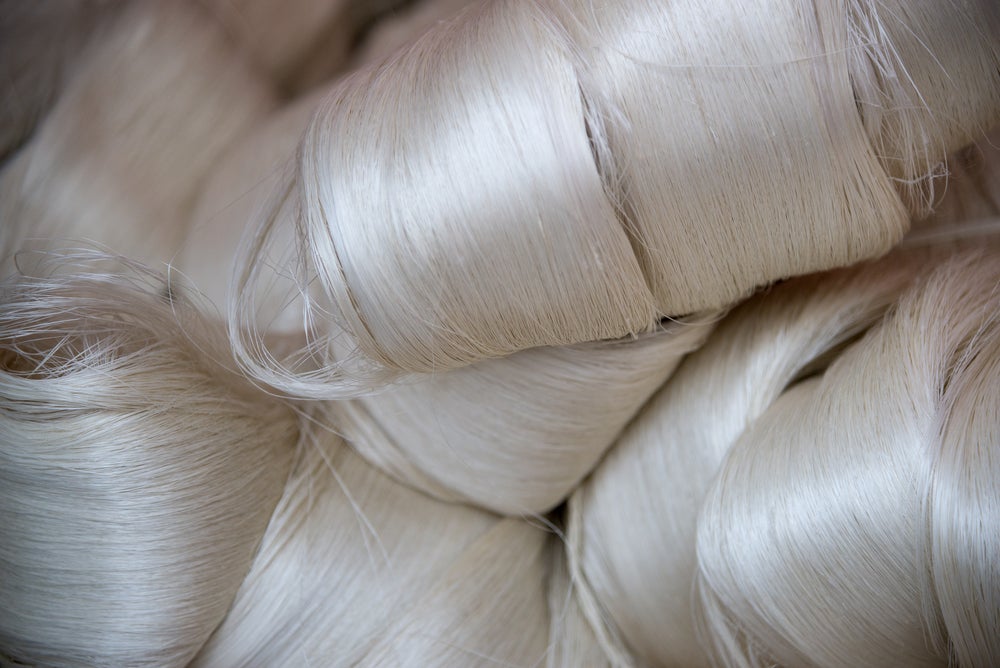The "Cradle-to-Gate" study, conducted by sustainability consultancy Quantis, compared the environmental footprint of AMSilk Ultrafine bio-fibre with mulberry silk across five environmental indicators - climate change, land and water use, acidification and freshwater eutrophication – which are said to be the “most relevant” to the textile industry and represent the top five of all 16 Product Environmental Footprint (PEF) indicators.
The relative impact of 1 kg of AMSilk Ultrafine vs. Mulberry silk was significant, with AMSilk Ultrafine having:
- 81% lower climate change impact
- 90% lower acidification
- 73% lower eutrophication of freshwater
- 92% lower land use
- 97% lower water use
The study credits AMSilk's fabrication process, which biosynthesizes silk-based protein polymers without the resource-intensive rearing of silkworms, as the key driver behind the environmentally reduced impacts. This avoids the deforestation, land use change, and other environmental tolls of mulberry silk production.
Separately, testing by the Fresenius Institute showed AMSilk's textiles are also readily biodegradable per OECD standards, with over 60% degradation in just eight days, ahead of the benchmark of 10 days and 84% within 28 days, while still being fully durable for normal consumer use.
“These strong figures reinforce the environmental performance characteristics of our material in addition to their various high-performance properties,” commented Ulrich Scherbel, CEO of AMSilk. “Our bio-fabricated fibres and yarns remove the limitations of existing materials and offer brands unimagined opportunities to reinvent themselves while reducing their carbon footprint.”









